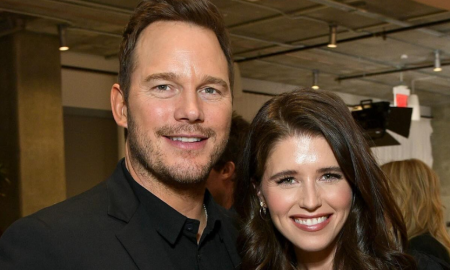
You Probably Qualify for Health Insurance Outside of the Open Enrollment Period Without Even Knowing It

Every year, the open enrolment period for Health Insurance comes. It prompts many Americans to consider their insurance options. Shopping for health insurance is no easy task, especially when everyone is busy doing it at the same time. And there’s so much confusion about it. What many people don’t realize is that they can buy health insurance outside of this hectic open enrolment period too. This is an option should a person experience what categorizes as a qualifying life event, or a QLE. After a QLE, an individual can use special enrolment periods or SPEs. This period is to sign up for new health plants or to make changes to an existing one.
Most People Don’t Know About QLEs
 Research by the Robert Wood Johnson Urban Institute found that several million Americans who were eligible for special enrolment as a result of a QLE weren’t even aware of this. The policy research institute reported that less than 15% of eligible individuals went ahead and took advantage of the special enrolment period. The studies by the CMS (Centers for Medicare and Medicaid Services) found that 20.6 million Americans qualified for temporary coverage for gaps. In comparison, 12.9 million Americans had the opportunity to enroll during SEPs.
Research by the Robert Wood Johnson Urban Institute found that several million Americans who were eligible for special enrolment as a result of a QLE weren’t even aware of this. The policy research institute reported that less than 15% of eligible individuals went ahead and took advantage of the special enrolment period. The studies by the CMS (Centers for Medicare and Medicaid Services) found that 20.6 million Americans qualified for temporary coverage for gaps. In comparison, 12.9 million Americans had the opportunity to enroll during SEPs.
Many kinds of health insurance QLEs could make you eligible for the SPE in a health insurance plan. Here are the fundamentals of QLEs and how you can know whether you qualify for an SPE or not.
What is a QLE?
If a major life change that may affect your health does occur, one can categorize it as a qualifying life event. This is an event that somehow impacts your health insurance needs or impacts your existing health insurance policy or its subsidies. QLEs could make you eligible for special enrolment periods during which you could purchase health plans or make amendments to your existing health coverage.
Examples of QLEs
 QLEs come in many shapes and sizes. Many QLEs have links to the workplace, like job changes, changes in job location, or drastic changes to income. Family status is also a related QLE. The most common QLEs are family status changes and major changes to one’s lifestyle. When it comes to family status, the changes include changes to members of the household or changes to the size of the household. This includes marriage, court-ordered family dependent changes, or the gain or loss of a family member in the home. A permanent move of the house is a QLE as well, whether moving as a student or moving state. A QLE may also be a change in eligibility or marketplace coverage or even the loss of eligibility for a health plan. Another often overlooked QLE is if there are errors in your enrolment plan or if there are exceptional circumstances.
QLEs come in many shapes and sizes. Many QLEs have links to the workplace, like job changes, changes in job location, or drastic changes to income. Family status is also a related QLE. The most common QLEs are family status changes and major changes to one’s lifestyle. When it comes to family status, the changes include changes to members of the household or changes to the size of the household. This includes marriage, court-ordered family dependent changes, or the gain or loss of a family member in the home. A permanent move of the house is a QLE as well, whether moving as a student or moving state. A QLE may also be a change in eligibility or marketplace coverage or even the loss of eligibility for a health plan. Another often overlooked QLE is if there are errors in your enrolment plan or if there are exceptional circumstances.
What is Not A QLE?
 If you do happen to experience an event that could qualify as a QLE. However, if it does not impact your health plan or alter the benefits, then it won’t qualify as a QLE. For example, if you go through a divorce or have a death in your family, but it doesn’t result in any need for changes to your coverage, then your situation will not qualify as a QLE. So the main question to ask about every major life event or change is whether or not it alters your health insurance coverage. You should also understand if it changes any of the benefits. If you move for a vacation, you do not qualify for a SEP. Similarly, if you voluntarily drop your coverage, you don’t qualify for a SEP.
If you do happen to experience an event that could qualify as a QLE. However, if it does not impact your health plan or alter the benefits, then it won’t qualify as a QLE. For example, if you go through a divorce or have a death in your family, but it doesn’t result in any need for changes to your coverage, then your situation will not qualify as a QLE. So the main question to ask about every major life event or change is whether or not it alters your health insurance coverage. You should also understand if it changes any of the benefits. If you move for a vacation, you do not qualify for a SEP. Similarly, if you voluntarily drop your coverage, you don’t qualify for a SEP.
Being informed is very important when you are an active member of society. Many responsible things have to be taken care of in adulthood, and your health is one of them. Fully understanding your health insurance, its benefits, and the ways it can work for you is essential. These days, information is only a click away. And if you do not want to call a company to find out more about them simply search the internet. Your health insurance should be no different. Health insurance isn’t a set and forgets type of thing. So, always stay up to date and move with the changes and the times!
More in Motivation
-
`
The Physical Signs of Hunger and How Mindful Eating Makes a Difference
Hunger is one of the most basic yet essential signals our body uses to communicate its need for energy. However, many...
December 15, 2024 -
`
Why Did Chris Pratt Call Anna Faris Before Proposing to Katherine?
Chris Pratt, the beloved star of “Guardians of the Galaxy,” made headlines when he revealed that he called his ex-wife, Anna...
December 3, 2024 -
`
6 Proven Tips to Tackle Insurance Claim Denials Successfully
Claim denials are a common hurdle for healthcare providers and professionals, even for those who follow the necessary procedures to avoid...
December 1, 2024 -
`
5 ‘Bad’ Fitness TikTok Trends You Shouldn’t Follow
TikTok has become a haven for creative fitness advice. But not all trends are worth your time or your health. From...
November 23, 2024 -
`
Does Drinking Water Affect Adrenal Hormones?
Drinking water is often seen as a simple way to stay hydrated, but it has deeper effects on our body than...
November 14, 2024 -
`
Why We Feel the Loss of Celebrities So Deeply?
Celebrity grief might sound strange at first. After all, most of us have never met these famous figures in person, yet...
November 5, 2024 -
`
Are High Deductible Insurance Plans as Ideal as They Appear to Be?
High deductible insurance plans have been a hot topic for years, especially as healthcare costs continue to rise. For many Americans,...
October 31, 2024 -
`
How Training Load Data Can Transform Your Exercise Routine
Tracking progress during workouts is challenging. Simple metrics like mileage or time don’t show the whole picture. Understanding the overall effort...
October 26, 2024 -
`
Katy Perry’s Weight Loss Journey: Secret Diet Tips Revealed
Katy Perry’s weight loss journey has been making headlines, with the pop star shedding 20 pounds over the past few months....
October 16, 2024















You must be logged in to post a comment Login